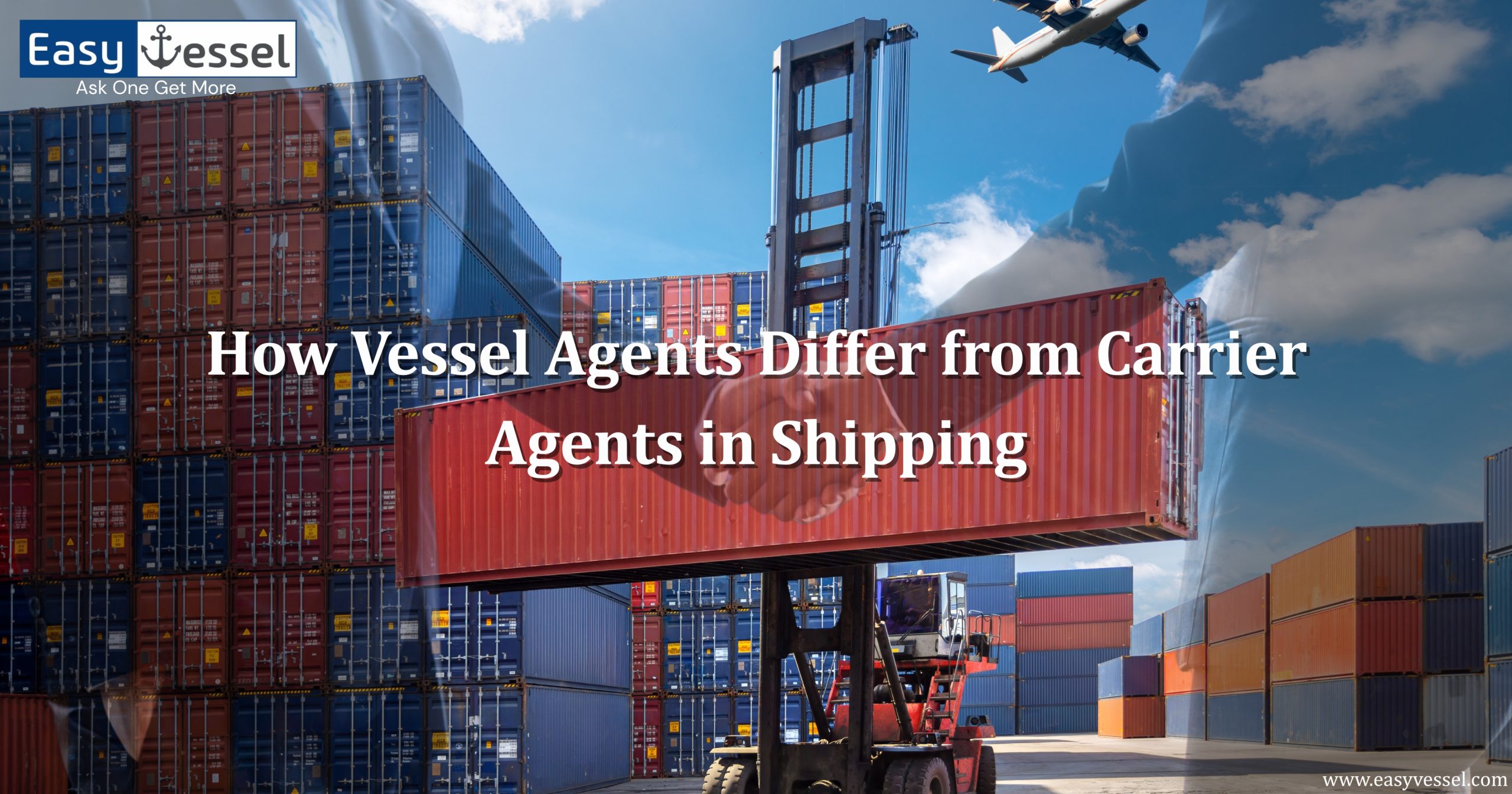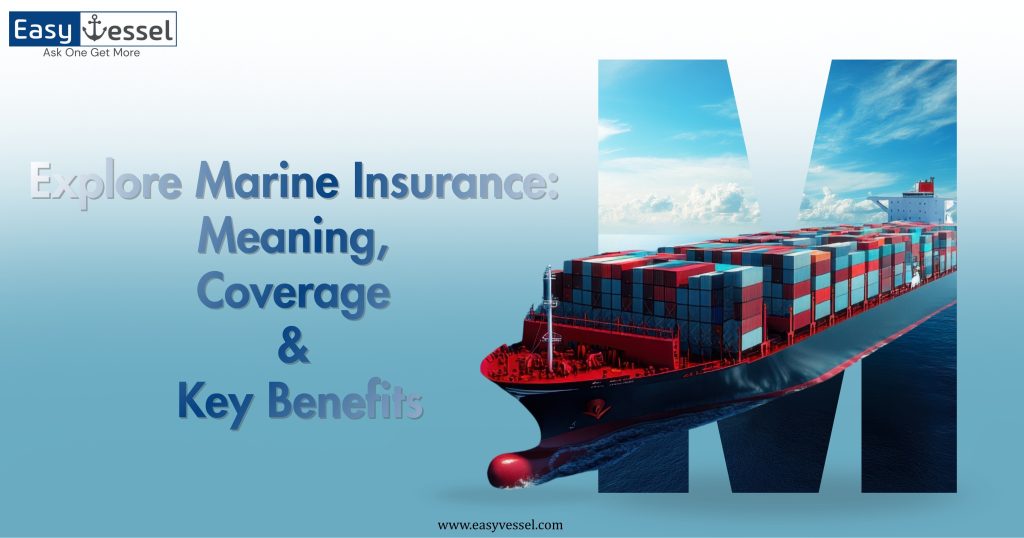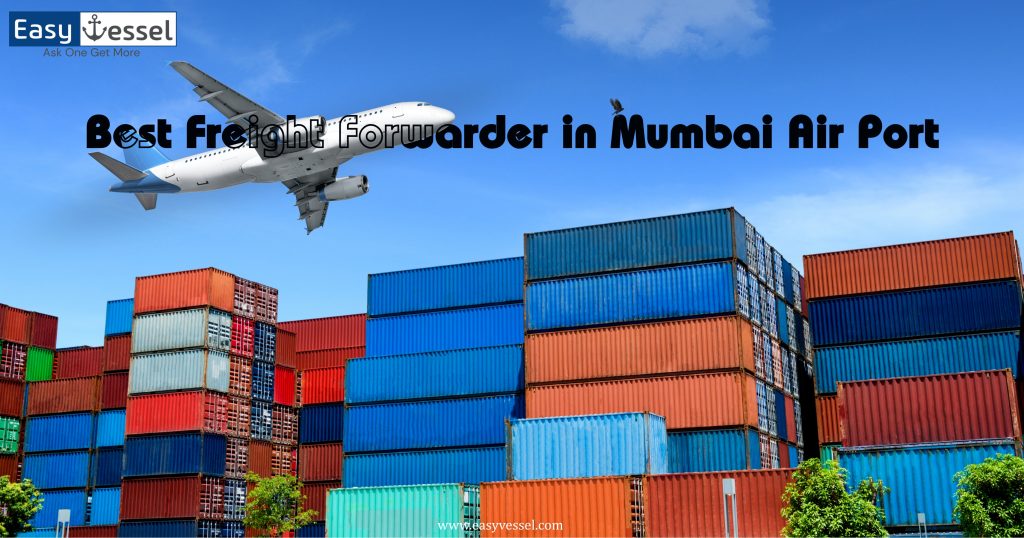In the complex world of international logistics, understanding the different roles various shipping professionals play is essential for smooth and efficient cargo movement. Two often-confused yet crucial roles in the transport and logistics industry are those of vessel agents and carrier agents. Although both fall under the broader category of shipping agents, their responsibilities, duties, and functions are distinct.
Whether you’re a freight forwarder, a business owner involved in import/export, or simply interested in how cargo moves across borders, it’s essential to grasp the key differences between these agents. This blog will clarify how vessel and carrier agents contribute differently to the global shipping process and help you make better decisions when managing your supply chain.
What Are Shipping Agents?
Before diving into the differences, it’s helpful to understand the broader term: shipping agents. A shipping agent is a representative appointed by a shipowner or operator to manage the port-related needs of a ship and its cargo. These agents are instrumental in ensuring that vessels dock, unload, reload, and depart efficiently and according to regulatory requirements.
There are various types of shipping agents, but two of the most important are vessel agents and carrier agents. Each plays a unique role in the international logistics landscape.
Who Are Vessel Agents?
Vessel or port agents act on the shipowner’s or vessel operator’s behalf. Their primary responsibility is coordinating the vessel’s needs when it arrives at a port. This includes a variety of operational, regulatory, and logistical tasks, such as:
- Arranging for the vessel’s berth
- Coordinating with port authorities
- Handling customs and immigration formalities
- Organizing pilotage and towage services
- Ensuring that provisions, fuel (bunkering), and repairs are available
- Managing crew changes if necessary
In essence, vessel agents serve the vessel itself. Their key focus is port call operations, ensuring that the ship’s stay at the port is efficient and compliant with all regulations.
Who Are Carrier Agents?
On the other hand, carrier agents represent the shipping line or carrier, whose primary concern is the cargo being transported rather than the vessel. Carrier agents act as intermediaries between the shipping line and the cargo owner (the shipper or consignee). Their responsibilities include:
- Booking cargo space on vessels
- Issuing Bills of Lading
- Communicating with freight forwarders and shippers
- Coordinating container deliveries and pickups
- Collecting freight charges
- Providing customer service and updates on cargo status
Carrier agents ensure that the cargo side of the shipping operation runs smoothly. They are often in contact with freight forwarders, helping to coordinate the logistics of container movement and documentation.
Read More: Difference Between Master Bill of Lading and House Bill of Lading
Key Differences Between Vessel Agents and Carrier Agents
Let’s break down the primary differences between vessel agents and carrier agents:
| Aspect | Vessel Agents | Carrier Agents |
| Representation | Shipowner or vessel operator | Shipping line or carrier |
| Focus | Vessel operations and port-related needs | Cargo operations and customer service |
| Main Tasks | Berthing, customs clearance, provisioning, crew changes | Cargo booking, documentation, customer support |
| Stakeholders | Port authorities, terminal operators, crew members | Freight forwarders, consignees, shippers |
| Interaction | Mainly with the vessel and port | Mainly with the customer and cargo |
This differentiation is especially important in transport and logistics, where confusion can lead to delays, miscommunication, or even legal complications.
The Role of Freight Forwarders in Coordinating With Both Agents
Freight forwarders play a pivotal role in the international logistics ecosystem. They act as the connecting link between cargo owners and various logistics service providers, including carrier agents and sometimes even vessel agents.
When organizing a shipment, a freight forwarder typically liaises with the carrier agent to secure space on a vessel, arrange documentation, and ensure the cargo complies with international shipping regulations. In some cases, freight forwarders might coordinate with vessel agents to manage port services or vessel scheduling, especially in complex or large-scale operations.
A knowledgeable freight forwarder understands the distinction between the two roles and leverages them appropriately to streamline the logistics process.
Why It Matters in International Logistics
Misunderstanding the responsibilities of vessel agents and carrier agents can have significant implications:
- Delays in cargo clearance or ship departures
- Incorrect documentation leading to fines or detentions
- Poor communication results in unsatisfied clients or disrupted supply chains
Knowing who to contact for what service is essential in international logistics, especially across high-traffic global ports. A company that assumes the vessel agent is responsible for cargo documentation may face serious setbacks.
Moreover, as the shipping industry becomes more digitized, with electronic documentation and automated tracking, the responsibilities of each agent become more specialized. This makes it even more important to distinguish clearly between their roles.
Real-World Example: A Typical Port Call
Imagine a container ship arriving at the Port of Antwerp. Here’s how the agents would be involved:
- The vessel agent ensures the ship is assigned a berth, completes all customs and immigration formalities, and arranges for the crew’s needs, fuel, and necessary inspections.
- Meanwhile, the carrier agent is busy notifying consignees of cargo arrival, issuing release orders, collecting freight payments, and ensuring all import/export documents are in order.
Both agents work on the same shipment but from different angles.
How to Choose the Right Partner in Shipping
Whether you’re looking for a freight forwarder or a shipping agent, it’s essential to understand your needs first:
- A vessel agent is your go-to if your concern is vessel arrival, berthing, or port logistics.
- Contact a carrier agent if you need assistance booking cargo space, managing shipping documents, or customer service.
Working with a reliable freight forwarder who understands the nuances of both roles can greatly enhance efficiency. They act as your strategic advisor in transport and logistics, ensuring the right professionals are contacted at the right time.
Conclusion: Two Roles, One Goal
In summary, while vessel and carrier agents are both under the umbrella of shipping agents, their functions are distinctly different. Vessel agents serve the ship and its operational needs at the port, while carrier agents manage the cargo and customer-related aspects of shipping.
Understanding these roles helps reduce confusion and streamlines your international logistics operations. Whether you’re an importer, exporter, or freight forwarder, working with the correct type of agent ensures that your goods move efficiently, compliantly, and on time.
If you want to strengthen your supply chain, consider partnering with experienced transport and logistics professionals who understand every facet of the shipping process—from the ship to the shore and everything in between.
Reference:
Shipping agency by Wikipedia[1].
Frequently Asked Questions
A shipping agent handles a ship’s business and administrative tasks in port. Appointed by the shipowner or operator, the shipping agent ensures smooth port operations, including coordinating with port authorities, arranging berthing, managing customs and immigration formalities, overseeing cargo operations, and attending to crew needs.
An issuing carrier agent acts on behalf of a shipping line to issue critical shipping documents such as the Bill of Lading. This agent manages cargo bookings and freight charges and ensures the cargo complies with shipping requirements. Essentially, the issuing carrier agent handles the commercial side of cargo movement, working closely with shippers, consignees, and freight forwarders.
The two main types of agents in shipping are vessel agents and carrier agents. Vessel agents handle port-related operations for the ship, including docking and crew arrangements. Carrier agents focus on cargo, managing documentation, bookings, and communication with cargo owners.
Some large transport and logistics companies offer vessel and carrier agent services under one roof. This integrated approach provides clients with a seamless experience, which is especially useful for businesses managing complex shipments. However, the roles and responsibilities remain separate, even if performed by the same company.



